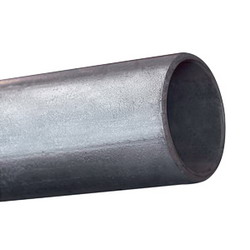
Introduction
Pipes serve as a fundamental component of our modern infrastructure, playing a pivotal role in the transportation of fluids such as water, oil, and gas. Their importance cannot be overstated, as they are integral to domestic plumbing, sewage systems, and industrial processes. With the increasing demand for reliable utilities and the constant need for infrastructure maintenance and upgrades, understanding the significance of pipes is more relevant than ever.
The Varied Applications of Pipes
In 2023, the global pipe market has seen significant growth, with demand surging due to expansions in various sectors. According to recent reports from industry analysts, the global market is projected to reach $100 billion by 2026, driven by urbanization and industrial growth. Pipes are essential in sectors ranging from residential construction, where they ensure potable water supply and drainage, to oil and gas extraction, where specialized pipes withstand extreme conditions.
Materials and Technologies
Modern pipes are made from a variety of materials, each suited for different applications: PVC, copper, ductile iron, and polyethylene, among others. For instance, PVC pipes are commonly used for water distribution due to their corrosion resistance and cost-effectiveness, while steel pipes are favored in oil and gas due to their strength and durability. Innovative technologies are also introducing smart pipe systems that can monitor conditions in real-time, enhancing efficiency and reducing leakage.
Environmental Considerations
The environmental impact of pipes is also a critical consideration. In many regions, aging infrastructure has led to water loss through leaks, prompting initiatives for upgrades and replacements. Sustainable practices, such as the use of recycled materials in pipe production, are gaining traction, contributing to a more eco-friendly approach in the industry. Additionally, as awareness of climate change grows, the focus on resilient pipe systems that can withstand extreme weather events is intensifying.
Conclusion
In conclusion, pipes are an indispensable element of modern infrastructure, supporting essential services and industrial operations. As technology advances and environmental concerns become more pressing, the future of the pipe industry will hinge on innovation and sustainability. For consumers and industries alike, understanding the importance of pipe systems will become increasingly vital as we work towards resilient and efficient infrastructure. Keeping abreast of these developments will not only help in ensuring proper maintenance of existing systems but also in planning for smarter future installations.






